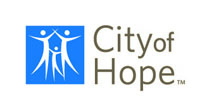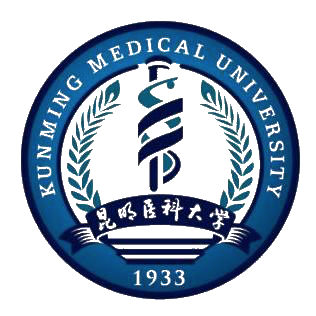
The University of Chicago Medicine Comprehensive Cancer Center is a collaborative cancer research center based in Hyde Park, Chicago, United States. The Comprehensive Cancer Center is affiliated with the University of Chicago. [1]

The University of Chicago Medicine Comprehensive Cancer Center is a collaborative cancer research center based in Hyde Park, Chicago, United States. The Comprehensive Cancer Center is affiliated with the University of Chicago. [1]
The Comprehensive Cancer Center was founded in 1973 as the University of Chicago Cancer Research Center, and, after earning its Comprehensive Cancer Center designation, [2] was renamed the University of Chicago Medicine Comprehensive Cancer Center.
The Comprehensive Cancer Center is one of 51 comprehensive cancer centers in the United States as designated by the National Cancer Institute [3] of the National Institutes of Health.
The first cancer research center director was John Ultmann whose specialty was the diagnosis, staging and treatment of Hodgkin's disease and non-Hodgkin's lymphoma, and the development of cancer chemotherapy. [4] The director is Kunle Odunsi, MD [5] who accepted the position in 2021. Odunsi is an expert in immunotherapy and vaccine therapy for cancer. He also serves as Biological Sciences Division Dean for Oncology and Professor of Obstetrics and Gynecology at the University of Chicago.

Comprehensive Cancer Center investigators are organized into four integrated scientific programs that take advantage of resources throughout the university, the University of Chicago Medical Center, and other scientific and medical communities:
The Comprehensive Cancer Center is involved in more than 300 cancer clinical trials [6] and encourages participation in the clinical trials by community oncologists and minority populations through a network of affiliated hospitals. Researchers also strive to eliminate health disparities among ethnic and social groups that compose areas surrounding the UChicago campus.

UChicago accomplishments include landmark prostate cancer treatment in 1939, the identification of the first chromosomal abnormality in leukemia in 1972, the 1988 discovery of the molecular mechanism by which tamoxifen blocks the effects of estrogen, and the 2008 development of a new MRI procedure that can detect early breast cancer. [7]

Baylor College of Medicine (BCM) is a medical school and research center in Houston, Texas, within the Texas Medical Center, the world's largest medical center. BCM is composed of four academic components: the School of Medicine, the Graduate School of Biomedical Sciences; the School of Health Professions, and the National School of Tropical Medicine.
The National Cancer Institute (NCI) coordinates the United States National Cancer Program and is part of the National Institutes of Health (NIH), which is one of eleven agencies that are part of the U.S. Department of Health and Human Services. The NCI conducts and supports research, training, health information dissemination, and other activities related to the causes, prevention, diagnosis, and treatment of cancer; the supportive care of cancer patients and their families; and cancer survivorship.

Tianjin Medical University (TMU) was founded in 1951; was the first medical institution approved by the State Council of the People's Republic of China. Hsien-I Chu, a renowned endocrinologist, was the first president of the university. The current president is Shang Yongfeng.

SUNY Downstate Medical Center is a public medical school and hospital in Brooklyn, New York. It is the southernmost member of the State University of New York (SUNY) system and the only academic medical center for health education, research, and patient care serving Brooklyn's 2.5 million residents. As of Fall 2018, it had a total student body of 1,846 and approximately 8,000 faculty and staff.
Dana–Farber Cancer Institute is a comprehensive cancer treatment and research institution in Boston, Massachusetts. Dana–Farber is the founding member of Dana–Farber/Harvard Cancer Center, Harvard's Comprehensive Cancer Center designated by the National Cancer Institute, and one of the 15 clinical affiliates and research institutes of Harvard Medical School.
NCI-designated Cancer Centers are a group of 71 cancer research institutions in the United States supported by the National Cancer Institute.

The University of Chicago Medical Center is a nationally ranked academic medical center located in Hyde Park on the South Side of Chicago. It is the flagship campus for The University of Chicago Medicine system and was established in 1898. Affiliated with and located on The University of Chicago campus, it also serves as the teaching hospital for Pritzker School of Medicine. Primary medical facilities on campus include the Center for Care and Discovery, Bernard A. Mitchell Hospital, and Comer Children's Hospital.

City of Hope is a private, non-profit clinical research center, hospital and graduate school located in Duarte, California, United States. The center's main campus resides on 110 acres (45 ha) of land adjacent to the boundaries of Duarte and Irwindale, with a network of clinical practice locations throughout Southern California, satellite offices in Monrovia and Irwindale, and regional fundraising offices throughout the United States.
The University of Maryland Marlene and Stewart Greenebaum Comprehensive Cancer Center (UMGCCC) is a National Cancer Institute (NCI)-designated comprehensive cancer center located in Baltimore, Maryland.

Yves A. Lussier is a physician-scientist conducting research in Precision medicine, Translational bioinformatics and Personal Genomics. As a co-founder of Purkinje, he pioneered the commercial use of controlled medical vocabulary organized as directed semantic networks in electronic medical records, as well as Pen computing for clinicians.

Kunming Medical University, previously known as Kunming Medical College, is a medical school located in Kunming City, Yunnan Province, China.

The Barbara Ann Karmanos Cancer Institute is a cancer research and provider network headquartered in Detroit, Michigan affiliated with the Wayne State University School of Medicine. The Karmanos Cancer Institute has 16 treatment locations and is one of 51 National Cancer Institute-designated comprehensive cancer treatment and research centers in the United States.

The University of Wisconsin Carbone Cancer Center (UWCCC) is a comprehensive cancer center in Wisconsin, as designated by the National Cancer Institute (NCI), the lead federal agency for cancer research. It is an integral part of both the University of Wisconsin (UW) and the University of Wisconsin Hospital and Clinics. It is located in Madison, Wisconsin.
Professor Minesh P. Mehta, MD, FASTRO, is an American radiation oncologist and physician-scientist of Indian origin, Ugandan birth, Zambian Schooling and American Training, who contributed to the field of oncology for more than two and half decades.
David T. Rubin is an American gastroenterologist and educator. He is the Joseph B. Kirsner Professor of Medicine at the University of Chicago, where he is also the Chief of the Section of Gastroenterology, Hepatology and Nutrition. He also serves as the Co-Director of the Digestive Diseases Center.
Roy S. Herbst is an American oncologist who is the Ensign Professor of Medicine, Professor of Pharmacology, Chief of Medical Oncology, and Associate Director for Translational Research at Yale Cancer Center and Yale School of Medicine in New Haven, Connecticut.
Ernst Robert Lengyel is an American gynecologic oncologist. Lengyel is the Arthur L. and Lee G. Herbst Professor of Obstetrics and Gynecology at the University of Chicago. Lengyel directs the Ovarian Cancer Research Laboratory, a translational research laboratory focused on understanding ovarian cancer metastasis and on developing and testing new treatments for ovarian cancer. In this role, Lengyel and his research team began to investigate the role of the fallopian tube in ovarian cancer as the cells more closely resemble those in the fallopian tube rather than the ovary.
Everett E. Vokes is an American oncologist. He is the John E. Ultmann Professor, chair of the Department of Medicine, and physician-in-chief at the University of Chicago Medical Center. In this role, he pioneered the combination radiation and chemotherapy as first-line treatment for head and neck cancer.
Sonali Mehta Smith is an American oncologist. She is the Elwood V. Jensen Professor and Chief of the Hematology/Oncology Section at the University of Chicago.
Adekunle O. Odunsi is an American gynecologic oncologist. In 2020, Odunsi was named the director of the University of Chicago Comprehensive Cancer Center.